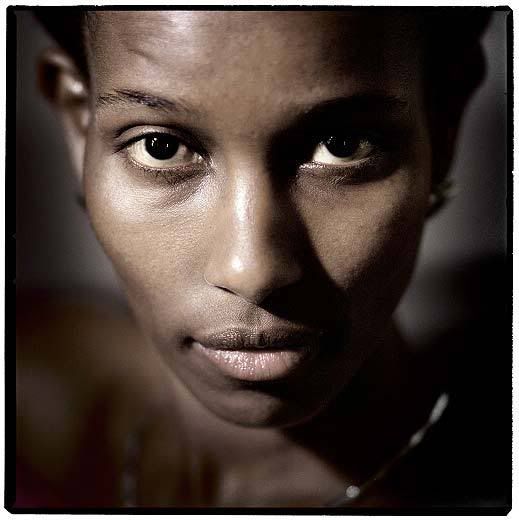The Infidel Ayaan Hirsi Ali
 Ayaan Hirsi Ali has written and published her autobiography, Infidel.
Ayaan Hirsi Ali has written and published her autobiography, Infidel.
As a 22-year-old Somali Muslim, Ayaan Hirsi Ali disappeared en route from Nairobi, Kenya, to an arranged marriage in Canada, and fled to the Netherlands. A decade later, she won a seat in the Dutch Parliament, where she became known as an advocate for women and a critic of Islam. She collaborated with Theo van Gogh on a movie that depicted abused women with passages from the Koran written on their skin. In 2004, Mr. van Gogh was shot dead in Amsterdam by a Moroccan immigrant, who then staked a letter threatening Ms. Hirsi Ali onto Mr. van Gogh’s chest, sending her into hiding for a while. Three months ago she landed in Washington as a fellow at the American Enterprise Institute. Her autobiography, “Infidel,” will be published in English on Tuesday. Recently she spoke to Laurie Goodstein, a reporter for The New York Times.
Ayaan Hirsi Ali decries that:
We in the West would be wrong to prolong the pain of that transition unnecessarily, by elevating cultures full of bigotry and hatred toward women to the stature of respectable alternative ways of life.
The current trend of political correctness does not tolerate views that allow for the fact that it is not 'radical' islam that is at war with the West, but 'ordinary' forms of islam.
She also describes how horrified she felt as an adult after Sept. 11, 2001, reaching for the Koran to find out whether some of Osama bin Laden's more blood-curdling statements -- "when you meet the unbelievers, strike them in the neck" -- were direct quotations. "I hated to do it," she wrote, "because I knew that I would find bin Laden's quotations in there." And there were consequences: "The little shutter at the back of my mind, where I pushed all my dissonant thoughts, snapped open after the 9/11 attacks, and it refused to close again. I found myself thinking that the Quran is not a holy document. It is a historical record, written by humans. . . . And it is a very tribal and Arab version of events. It spreads a culture that is brutal, bigoted, fixated on controlling women, and harsh in war."
That moment led Hirsi Ali to her most profound conclusion: that the mistreatment of women is not an incidental problem in the Muslim world, a side issue that can be dealt with once the more important political problems are out of the way. Rather, she believes that the enslavement of women lies at the heart of all of the most fanatical interpretations of Islam, creating "a culture that generates more backwardness with every generation."
Ayaan Hirsi Ali will live under a fatwa for the rest of her life as a result of leaving islam. As a former muslim, she can teach us a lot if we are willing to listen.
~~~~~~~~~~~~~~~~~~~
Previous:
- On Muslim Silence
- Aayan Hirsi Ali - Courage and Grace
- On Whose Side Were You When It Mattered?
- Manifesto Against Islam
Crossposted at Blue Star Chronicles
Labels: Ayaan Hirsi Ali, Global War on Terrorism, infidels, Islamic Jihad, muslim culture, Netherlands, Obsession The Movie, Political Correctness
 Socialize this!
Socialize this!  Personalize this!
Personalize this!  Radicalize this!
Radicalize this!

















